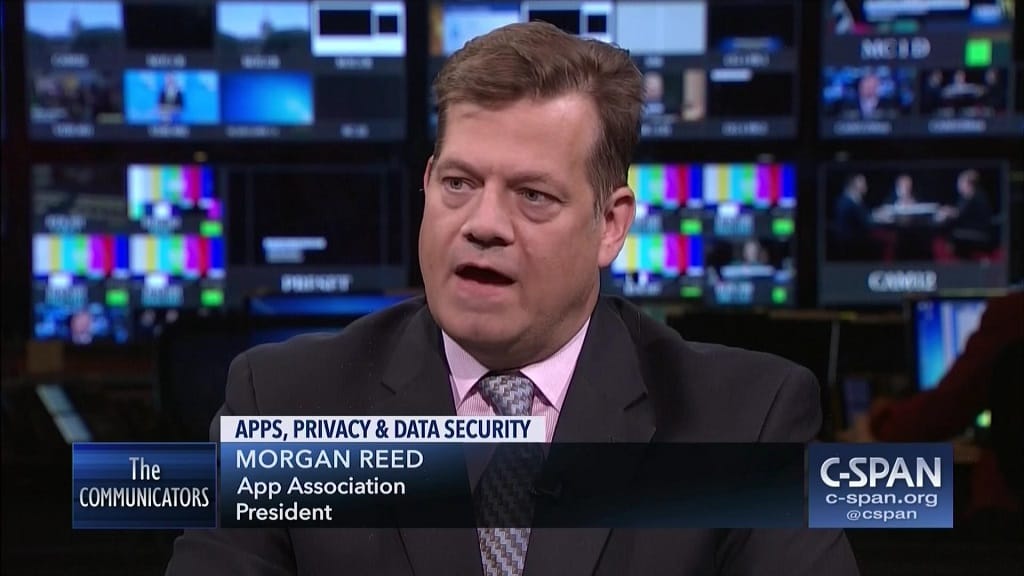For or Against, It’s Time To Consider Codifying Net Neutrality In Law, Panelists Say
March 18, 2021 – The issue of net neutrality has captured more bandwidth than needed and the concept – either for or against – must be codified in the law so the issue doesn’t surface every election cycle, the president of the App Association said during a Federal Communications Bar Association even
Derek Shumway

March 18, 2021 – The issue of net neutrality has captured more bandwidth than needed and the concept – either for or against – must be codified in the law so the issue doesn’t surface every election cycle, the president of the App Association said during a Federal Communications Bar Association event Thursday.
“Absent congressional action, this yo-yo will continue,” said Morgan Reed, whose organization represents app makers and connected device companies. Reed proposed Congress deal with the matter by, once and for all, putting it in the Telecommunications Act.
The debate about net neutrality, which stipulates that all internet traffic should be treated equally and that no telecom should be able to accept payment to speed up applications, has picked up since the Federal Communications Commission changed leadership and President Joe Biden took office.
The acting chairwoman has been a supporter of net neutrality. Biden’s justice department dropped a lawsuit recently challenging a proposed net neutrality law in California, which AT&T said forced it to stop offering free services because it would not be able to give it preferential treatment under the proposed law.
All roads seem to point to the reinstatement of net neutrality rules once instated by the Obama-era FCC but was reversed by the Trump-era regulator.
Currently, telecommunications is categorized as a Title I service, meaning it is spared from additional FCC regulatory burdens like managing content over its networks. That can be reversed if it is reclassified as a Title II, which effectively bring it under the ambit of the net neutrality rules.
Kristine Hackman, vice president of policy and advocacy at US Telecom, said operating under Title I regulations is not appropriate and outdated.
“We can’t regulate internet well with a statute that was written before World War II!” She defended ISPs and said they are not engaging in throttling, despite what she called false accusations suggesting otherwise, and said it is not in their natural conscience to even try to throttle since the consumer is in their minds.
Part of the issue with the approach to net neutrality is the confusion surrounding who governs the issues. Jon Peha, professor at Carnegie Mellon University, said that the newspapers these days confuse legal authority with the rules, saying the FCC’s authority to regulate is muddied with what authority the Federal Trade Commission has. He said the current position of the FCC is that it has no authority to deal with net neutrality, privacy, and even pole attachments, explaining that its authority over communications infrastructure is unclear.









Member discussion